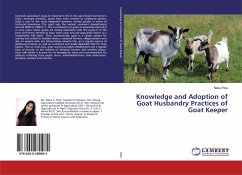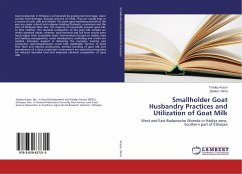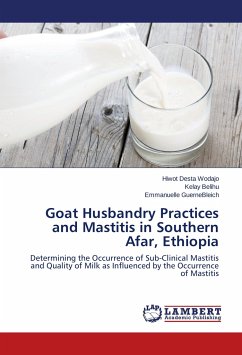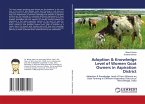Livestock agriculture plays an important role in the agro-based economy in India. Amongst livestock, goats have been treated as neglected species. Goat is one of the most neglected domestic animal species in terms of technical knowhow. The goat was the earliest ruminant domesticated around 9000 to 7000 B. C. The contribution of goats is especially important in rural areas where goats are closely associated with the poorest of the poor and hence termed as 'poor man's cow' and are popularly known as a 'readymade milk bank'. Thus, economically, goat is a cheap animal for rearing and suited to landless labour, marginal farmers, village artisans and also to people who are living below poverty line, as a regular source of additional income, as well as, nutritious and easily digestible milk for their babies. Thus in rural area, goat rearing provides employment and a regular flow of income to the families of marginal farmers and landless labour. Goat milk which is known for its therapeutic value and recommended for patients suffering from peptic ulcers, infentilediarrhoea, liver disfunction, jaundice, acidosis and insomia.
Bitte wählen Sie Ihr Anliegen aus.
Rechnungen
Retourenschein anfordern
Bestellstatus
Storno








